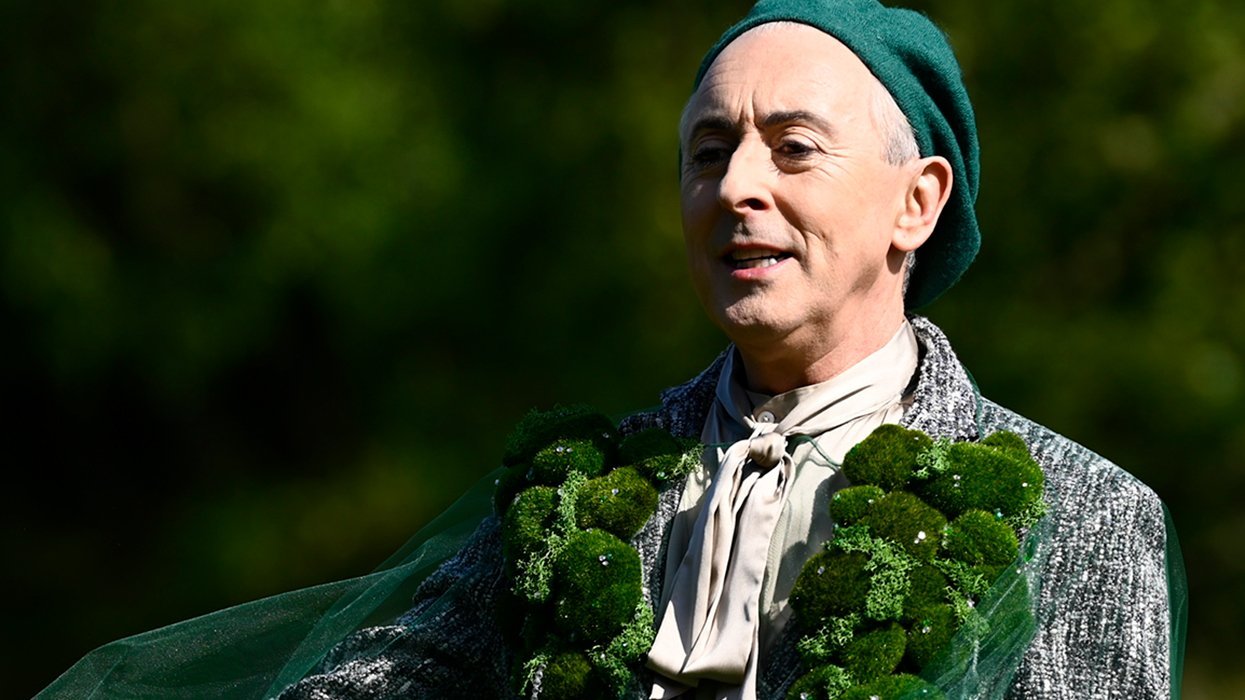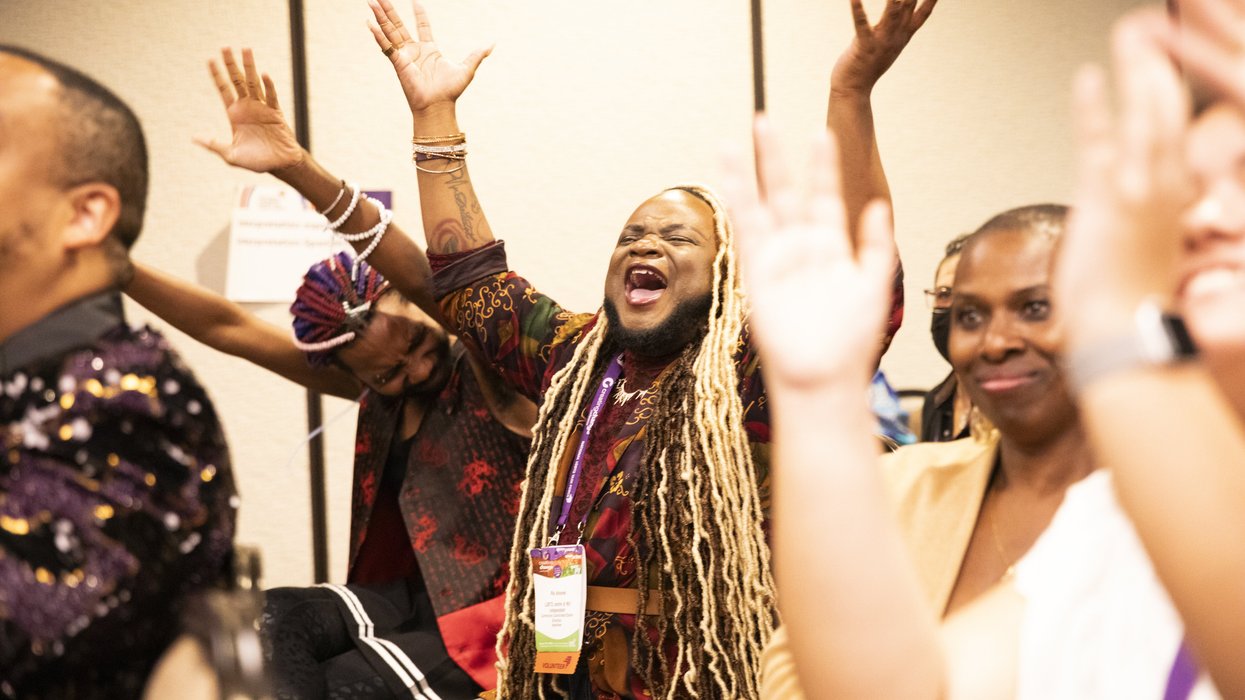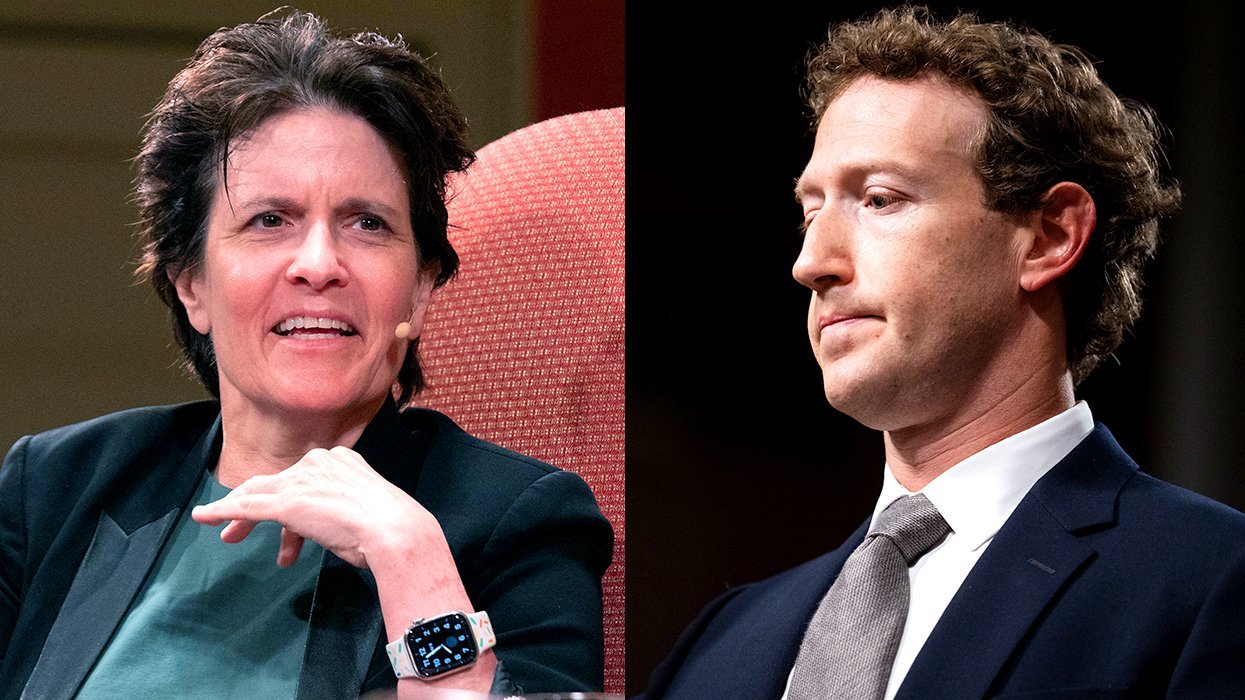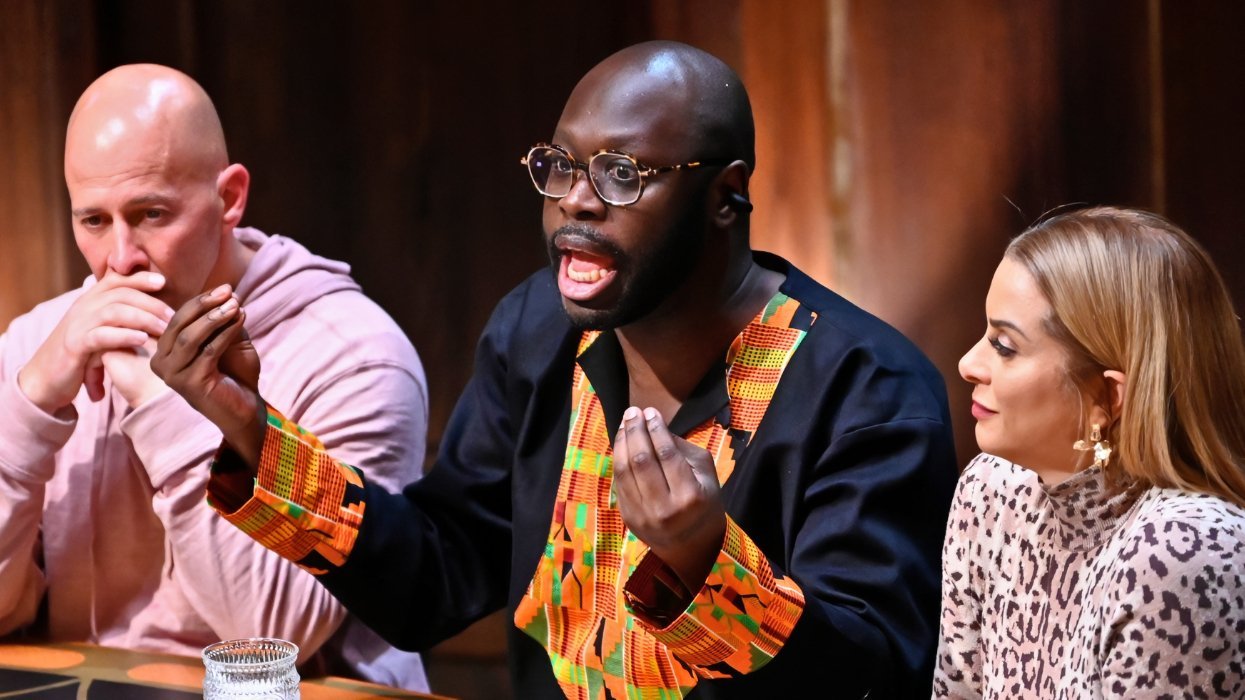Photo by Kent Taylor
Breanna Sinclaire is not much of a sports fan but tonight she's attending her first Oakland A's game, and, at least at the beginning, all eyes will be on her. Sinclaire, a San Francisco-based opera singer, will ring in the game by singing the "Star-Spangled Banner" in her powerful soprano, becoming the first transgender woman to sing the national anthem at a professional sporting event, according to the singer. "We wanted to promote the theme of inclusion throughout the night, and the anthem is an important part of that," the team told Out in a statement.
"It's nerve-wracking," Sinclaire admits, noting that it is by far the largest crowd she has performed in front of -- not even counting the vast TV audience. "But I love what I do and I've been trained to do this. It's a blessing." The honor is also something of a peak ascent for the 25-year-old, who has traversed a number of dark valleys on her journey to becoming a professional singer.
In Baltimore, where she grew up, Sinclaire's grandmother introduced her to classical music and the great African-American opera singers like Marian Anderson, Leontyne Price and Jessye Norman. "She'd play them when she'd babysit," says Sinclaire. Her first experience singing was with her Baptist church's choir, where she was handed solo after solo. Despite her physical development as a boy, her voice never really changed, remaining clear and angelically high. With her grandmother's help, she studied with vocal coaches and enrolled at the Baltimore School of the Arts.
As she embraced her voice, she struggled with her gender identity. It wasn't until she moved out of Baltimore that she began to embrace that too. "When I left my family, I discovered myself," she says. At a small conservative Christian college in Canada, Breanna the woman began to emerge but was not embraced by her peers. Unable to continue her journey there, Sinclaire soon left. Disowned by her family, she spent several months homeless in New York City. But music was her North Star, and she followed it to the prestigious California Institute of the Arts, where she earned her B.F.A. and where, in her senior year, she began to transition. The process is arduous for any person, but for Sinclaire, transitioning played particular and unpredictable havoc on her voice. "With hormone therapy, I had to adjust," she says. "Your body goes through drastic changes. My voice teacher said, 'you have to plow through it.' If I didn't keep practicing, I wouldn't be able to sing today."
The classical opera repertory is filled with strong woman thrust into tragic circumstances, and many have inspired Sinclaire -- among them, Delilah, Mignon and Carmen. "I like Carmen because she had struggles but she also had confidence," Sinclaire says. "She was sassy, and that's the person I wanted to be, that sassy, confident woman." Opera heroines aside, the conservatories where Sinclaire studied have been a mixed bag in terms of supporting her. She says she received negative feedback when she first expressed her desire to transition and sing soprano roles as an undergraduate and that much of her time at the San Francisco Conservatory of Music, where she received her masters in 2014, was challenging. "I felt out of place," she says. But some teachers, particularly Ruby Pleasure at the SF conservatory, became her champions and music got her through the tough times. "My education was my protection, my music was my protection," she says. "Every time I performed, all my struggles dissipated. I know it sounds cliched but I was passionate about it."
Yet as Sinclaire concentrated on perfecting the voice she wanted, she also worked for the body she wanted. Two years ago, she hosted a benefit concert she called "Opera's Greatest Tits" to raise money for the next step in her physical transformation (she successfully raised $8500 for the event's, um, titular procedure). A few months ago, she completed sexual reassignment surgery, which she says has helped her confidence performing female roles. "I feel very complete," she says. "Psychologically and emotionally, I'm singing in front of people as my complete self."
From Thursday through Saturday, Sinclaire will also perform in the 14th Annual Fresh Meat Festival, celebrating transgender and queer performers. There she'll sing arias from Camille Saint-Saens' Samson et Dalilah and Gaspare Spontini's La Vestale, as well as the 19th century spiritual Sometimes I Feel Like a Motherless Child by the pioneering African-American singer and composer H.T. Burleigh.
"Breanna impresses me not only as a brilliant singer and performer, but also for her huge heart and commitment to community and trans activism," says Sean Dorsey, the festival's artistic director. "The whole Fresh Meat vision is that until all of us are free, none of us are free. It's all about building alliances and solidarity and community. And that's what Breanna's all about." Additional Fresh Meat artists include North American Same-Sex Ballroom champions Robbie Tristan and Ernesto, singer-songwriter Shawna Virago, storytellers and comics Manish Vaidya and Natasha Muse, and performances by Dorsey's dance company.
Following Fresh Meat, Sinclaire will make a guest appearance with the San Francisco Gay Men's Chorus, June 26-27, and then concentrate on future performances. She is strategizing her path to Europe, where she plans to audition for companies and further her studies in London or Germany (she became fluent in German during graduate school.) While on the continent, she also plans to stop by the revered opera house La Scala, where one day she hopes to sing. In the meantime, a grassy outdoor stage and thousands of spectators in baseball caps await.
The Fresh Meat Festival runs June 18-20 at Z Space in San Francisco. More information and tickets, visit FreshMeatProductions.org.




















































































Beware of the Straightors: 'The Traitors' bros vs. the women and gays